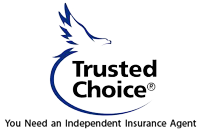 What Is Health Insurance?
What Is Health Insurance?
Health insurance is a type of coverage that can protect you from the full expense of regular health care, as well as the costs of medical and surgical procedures. In exchange for paying a premium, your insurance company will cover the costs of your healthcare and certain types of medical procedures.
Health plans may be available from your employer, but you also have the option of purchasing your healthcare coverage privately. If you are self-employed or unemployed, you may have group insurance options through professional associations, in addition to private health insurance.
One of our agents in the Trusted Choice® network can help you compare plans, options and quotes from multiple insurance companies and can customize a plan for your unique situation. Contact us today.
Learn More Today >>
What Does Health Insurance Cover?
Health insurance can cover a variety of things, from your regular checkups and family care to your major medical expenses. The types of services that are covered will vary with different healthcare providers and plan types, so it is important to determine your needs before buying a specific health insurance plan.
Physician office visits are one of the most common things that health insurance covers. Other common covered services include hospital room and board, emergency room visits, and inpatient substance abuse treatment. Some things that you might think would be covered under a majority of policies may not be; some of the common excluded health care needs are maternity care and diabetes care management.
Some insurance policies will cover vision services and surgeries while others will not. Special tests may not be covered and you should not expect all services to be covered 100 percent. There is normally an out-of-pocket expense, through a co-pay, coinsurance or deductible.
Make sure that you know what your policy covers, whether all of your family members are covered, and how it will be paid for. Some health insurance policies, like HMOs (health maintenance organizations), will only cover procedures performed by certain professionals in a network. A PPO (preferred provider organization) will allow you to choose your provider and then pay based on that provider’s preferred status.
Learn More Today >>
How Does Health Insurance Work?
Health insurance can help you pay for your regular healthcare costs as well as your major medical expenses, depending on the type of plan you choose.
You will pay a premium of some kind, based on your plan and coverage, whether you get your health insurance through your employer or privately. Depending on your type of plan, you may have co-pays, deductibles and coinsurance.
Here is an overview of these costs:
- Co-payments: With a co-payment, the insurance company agrees to pay for a service but you must cover a pre-set cost, such as $20. This cost applies every time you schedule that service; co-pays can be lower or higher depending on the plan.
- Deductibles: A deductible is the amount of money that you are required to pay before your insurance begins to cover services. Normally, you will either need to meet a deductible or pay a co-pay amount.
- Coinsurance: Some policies may have coinsurance, which requires you to pay a certain percentage of services rendered. Your coinsurance may be an amount you pay in addition to your co-pay and may apply towards your deductible.
Choosing the best plan really depends on your personal circumstances. An independent agent in the Trusted Choice network who specializes in health insurance can help you navigate the many options and find the most sensible and affordable plan for your needs.
Why Is Health Insurance So Important?
Health insurance helps you to manage the costs of your family’s care, including regular doctor’s visits and unexpected illnesses and injuries.
Just one serious illness, or an emergency procedure can have dire consequences for your financial portfolio if you aren’t insured properly. Health insurance coverage may seem expensive, but if you compare your premiums to the cost of surgery and other medical procedures out of pocket, there’s no question that healthcare insurance premiums are far lower in cost.
Also, having adequate health insurance can help you live a healthier, longer life. Many policies cover preventive care, which helps you manage your health proactively. These plans can help with early detection for common conditions and diseases, such as diabetes, heart conditions, and thyroid problems that can require much more extensive and costly care if they go untreated.
By contrast, if you are uninsured, you’re less likely to visit the doctor, which can be a disincentive to get routine physicals and take charge of your good health.
Learn More Today >>
How to Get Health Insurance?
When you begin to search for health insurance, it can be extremely overwhelming. Start by assessing your needs. If you’re prone to illness, play high impact sports or have a risky profession, it may be better to have a co-pay plan rather than one with a high deductible.
If you have children, you will need a different plan than if you’re single with no kids. If you have a favorite doctor, make sure that your favorite doctor is “in-network†if you opt for an HMO. You also need to think about your budget, and whether a plan that involves coinsurance or higher deductibles makes the most sense for you. By assessing your needs and comparing plans, you can find an affordable healthcare plan that meets your needs.
Many people don’t know where to start because the number of plans and variety of coverage options is very confusing. One of our Trusted Choice agents who specializes in health insurance is an excellent resource. These agents can help individuals and families to review a range of plans from different health insurance companies and choose one that will help with preventive care and major medical care at an affordable cost.
Is Health Insurance Required by Law?
With the passage of federal healthcare reform, in 2014 most people will be required to have health insurance. If you don’t have health insurance, you could face a tax penalty. There will be certain exemptions to the law but the aim of health reform is to lower costs, making it easier to get the health insurance you need.
When many people are uninsured, the result is that tax payers must shoulder the burden of healthcare costs for those who are not able to pay for care. One challenge is that by the time uninsured individuals visit the doctor, the health condition has often declined and the treatment procedures are more prolonged and expensive.
Healthcare reform is designed to get everyone covered so they are managing their health before health conditions get out of control.
What Does Health Insurance Cost?
The cost of health insurance depends on several factors. Costs vary based on your plan type, whether you have insurance through an employer or private insurer, what state you live in, and how much of the insurance you cover.
On average, individual policies cost anywhere from $150 to $200 per month and family policies can cost $350 to $425 per month. With some plans, you will pay these premiums entirely out of pocket and for others, the majority of premiums are covered by an employer. You can adjust your premium based on your coverage amounts as well as your deductible amount.
If you need more affordable healthcare but aren’t sure where to start, you can shop for a lower cost plan through one of our independent agents in the Trusted Choice network.
Learn More Today >>
Is Health Insurance Tax Deductible?
Health insurance is tax deductible if you are self-employed or have a health savings account. If you are self-employed, the premiums that you pay for health insurance for yourself and your dependent can be deducted from your taxes. If your dependents are covered under another insurance plan, you cannot deduct that premium.
A health savings account (or HSA) is used in conjunction with a high deductible health plan. You typically must buy these plans from an employer, although they are also offered through private insurance companies. Any amount of money that you contribute to your HSA account, up to a certain limit, is tax deductible.
What Is a Health Insurance Deductible?
A deductible is the amount of money that you need to pay out of pocket before your insurance begins to provide coverage. Deductibles will renew each year and some services may be covered without having to meet your deductible amount. The most important issue I have noticed during Ambien course is the effectiveness, which depends on proper drug intake. The doctor from https://www.wcihs.org/ambien-without-prescription/ prescribed me an individual Ambien dose that was supposed to help me with insomnia signs, and it did.
If you have a high deductible, it can save you money on your monthly premiums; just be sure you have the funds set aside to pay the deductible in the event that you need major medical care.
What Does Health Insurance Cost an Employer?
If you have health insurance through your employer, the employer generally pays significantly more for the policy, but you still pay a portion of the cost out of your paycheck. Average costs for single persons and families have increased each year. In 2012, the average employer paid just over $15,000 for a health care plan.
Employers have the right to raise the premium that an employee pays for healthcare to help offset business costs, but employees must be informed.
Whether you choose a healthcare plan through your employer or a private insurance company, the most important thing is finding the best policy for your needs. If you contact a local independent agent in the Trusted Choice network for assistance, you can feel more confident about your insurance coverage, not because you will have more choices but because you also will receive more help.
Work with one of our independent agents to find the right policy for you.




Leave a Comment